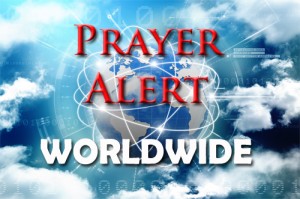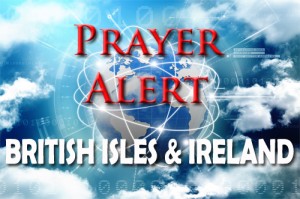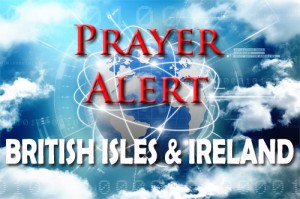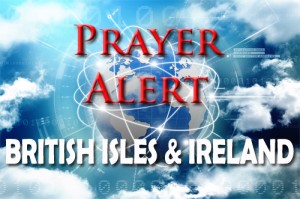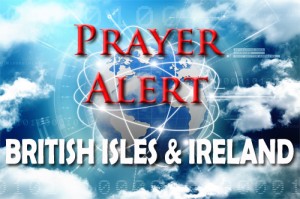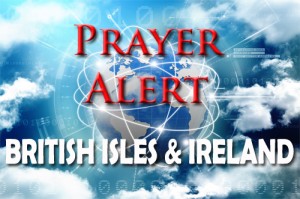
David Fletcher
David Fletcher is Prayer Alert’s Editor.
He is part of a voluntary team who research, proof-read and publish Prayer Alert each week.
If you would like to make a donation towards our running costs, please click here.
Algeria’s population is 40.3 million - 99% Muslim, 1% Christian. Literacy: 87% men, 73% women. The country was home to St Augustine, one of the Church’s foremost theologians (354-430). Christianity flourished between the fifth and seventh centuries but disappeared after Arab invasions. Since independence in 1962, an entirely local church has been born among the Berber people. Its astonishing growth in the last few decades is thought to be the fastest in the Arab world, with several thousand new believers baptised every year. Church growth is exciting and challenging. In this ‘first-generation Church’ there is a great need for discipleship, strong biblical teaching and encouragement for believers to live out their new-found faith every day. Such a radical change in their worldview means that new Christians are often left with questions and face many challenges. SAT-7 broadcasts across the airwaves, and is responding to this need with a range of programmes to encourage and disciple Algerian believers.
In the USA, 68% of men in church regularly view porn. New research has now revealed that ‘of young Christian adults 18-24 years old, 76% actively actively seek out pornography’. These latest statistics show that the Church has a dirty secret. Chances are that on any given Sunday morning, either the person sitting to your left or to your right will be struggling with pornography. Never before has such a large portion of the Church lived in contradiction of what we believe. Jesus didn’t mince words when he said, ‘But I say, anyone who even looks at a woman with lust has already committed adultery with her in his heart.’ At that point in time, adultery was punishable by death! If we don’t confront the issue of pornography, the church is going to continue dying from the inside.
Five hours of prayer every day, soup kitchens, sharing the Gospel with street people, impromptu guitar jams, amazing beards in the world of a Franciscan friary - all these are featured in a BBC documentary, Friars on a Mission (available for another 19 days on iPlayer). This unique insight into the simple and missional lifestyle of five Franciscan friars in Bradford has testimonies from them and those they have helped. Brother Benedict - who was once promiscuous and heavily involved in drugs before having a life-changing encounter with God - enthuses in a thick Mancunian accent, ‘I’ll always be raving for Manchester, but I’m raving for the Lord.’ Tony, a homeless man, adds, ‘If it wasn’t for the friars, there is a very good possibility I’d be dead.’ Warmth, humility, and joy - not to mention an infectious sense of humour - radiate from them all.
Pastor Marcio Antonio stands at the pulpit in a one-room evangelical church built precariously above barbed wire fences and illegally hung electrical cables, exhorting his flock in a Brazilian favela to improve their morals. A former drug dealer in Cantagalo, an informally built hillside settlement where most residents lack official property rights, Pastor Antonio and his flock at the Assembly of God Church are part of a growing trend. Evangelical churches are expanding rapidly in Brazil, home to the world's largest Catholic community, especially in poor favelas. These communities, which developed from squatter settlements, often do not have the same services as formal Brazilian neighbourhoods in terms of healthcare, sanitation, transportation or formal property registration. ‘The government doesn't help us so God is the only option for the poor’, Pastor Antonio, 37, told the Thomson Reuters Foundation following his Sunday sermon.
God has given you and me the privilege and responsibility of blessing people, communities and land in the name of Jesus, not interceding (although we must do that as well) but speaking out directly. This is powerful when done as part of everyday life. Where this biblical practice is being recovered, salvation and community transformation are taking place.
(written by Roy Godwin, The Ffald-y-Brenin Trust)
Felix Ngole, a Christian, has won the right to challenge his expulsion from a social work course at the University of Sheffield because in a discussion on Facebook he had expressed his Christian views on marriage and sexuality. Mr Ngole, a second-year masters student, sought permission on Wednesday for the High Court to review the university's decision judicially after it rejected his internal appeal. The university said that his comments breached a code of professional conduct, but the High Court granted permission for a judicial review. The Christian Legal Centre is representing Felix and will continue to support him, as the case has wide-reaching ramifications for the freedom of Christians.
Political parties need to get candidates in place before the deadline of 11 May. Any British, Irish or eligible Commonwealth citizen over 18 with £500 deposit can stand. Pray for God’s guidance for committees in the constituencies as they select candidates. Proverbs 22:29 says, ‘Do you see a man who excels in his work? He will stand before kings, he will not stand before unknown men.’ Pray for men and women to be chosen who excel in their work. All of Labour’s 229 MPs were automatically re-selected, but 12 opted to stand down. Conservatives short-listed candidates for target seats without inviting applications: four MPs stood down. Liberal Democrats hope to have candidates in all seats by next week. UKIP’s selection process has begun; they hope to have candidates nationwide. Pray that there will be no manipulation or inappropriate ‘deals’ affecting choice in the 650 seats.
Satan has regular tactics. They have recurred across the ages. He loves to conceal himself. Therefore in our personal lives or national situation we could fail to spot him at work. We need to ask a simple question: is this situation creating fear, unbelief or uncertainty? Nationally, as the General Election approaches, there is a fear factor. We saw it dominating the arguments in the Referendum. We need to ask, ‘Is this the normal political hurly-burly or something more sinister?’ We can take a stance in our prayers and say ‘Lord, we stand against the spirit of fear, intimidation and manipulation’. We also see it in the fear of terrorist attacks. Terrorists create fear; we can pray for agents of fear to be brought into the light. Pray for God to enable the police and intelligence forces. Pray against the enemy’s lies and manipulation, particularly where potential terrorists are concerned.
The Church of England has about 4,700 schools, educating about one million children each year. A senior CofE official has suggested that parents should lose the right to withdraw their children from RE lessons, because it is being exploited by those who do not want their offspring to learn about Islam and by parents with ‘fundamentalist’ beliefs who do not want their children to learn other world views. Derek Holloway, head of RE in the CofE’s education office, said pupils risked being left with little understanding of religious belief and without the skills to live in a modern and diverse country. This is not confined to any one particular religion or area of the country. At present parents can insist that their children take no part in RE lessons and do not have to provide a reason. Schools must comply with their request.
Data released by the Metropolitan Police showed that the number of reported acid attacks in London rose by 74% in 2016; over 1,800 attacks involving corrosive fluid have been reported since 2010. Acid is a popular weapon for gangs, as it is easy to obtain and it can be difficult to identify the attacker. Schoolchildren are increasingly using acid as a weapon instead of knives. The attacks, known as ‘dosing’, happen when youths smuggle acid or ammonia into school hidden inside drinks bottles. One 18-year-old told the Sunday Times that many were using bottles of cheap household cleaner as weapons. He claimed he has carried acid since he was 12, and said that he could get it for £5 and mess someone’s whole life up. He added, ‘A lot of people ain’t got the heart to stab people. It’s just easier to squirt someone.’ The police are appealing for parents’ help in tackling the problem.


